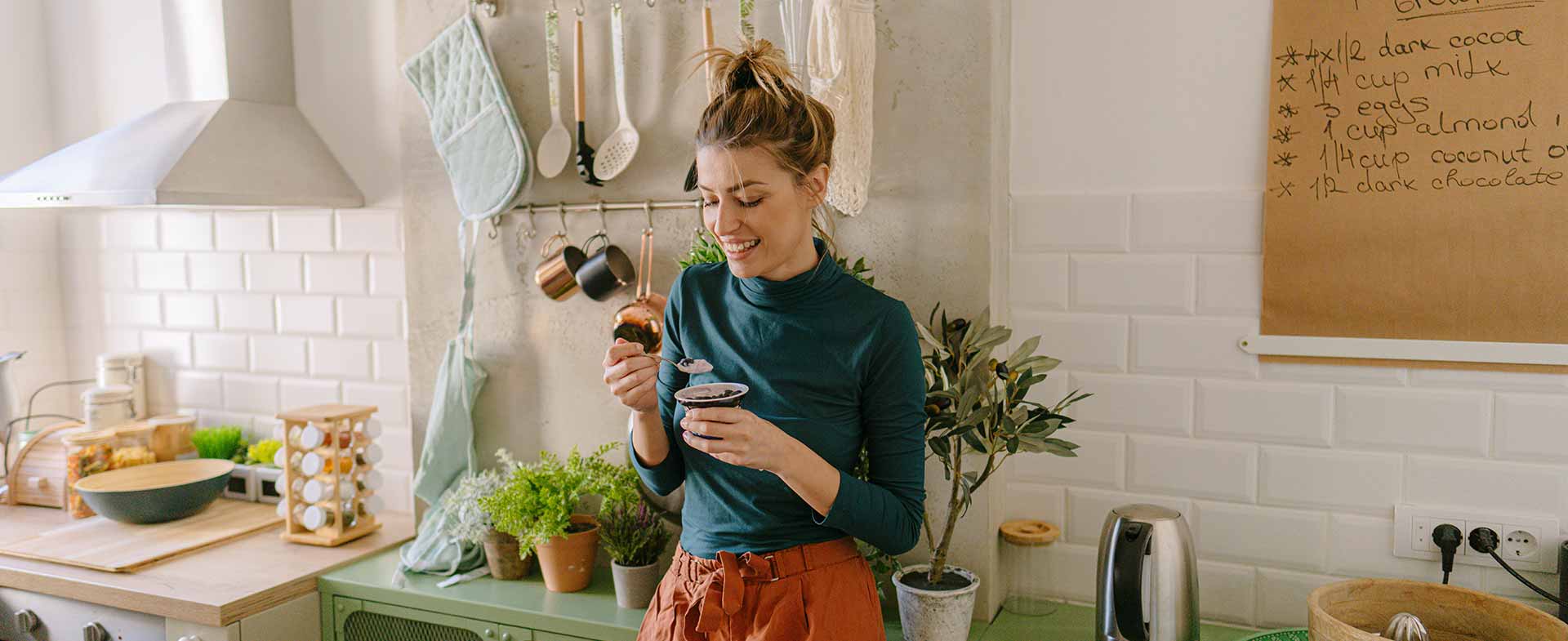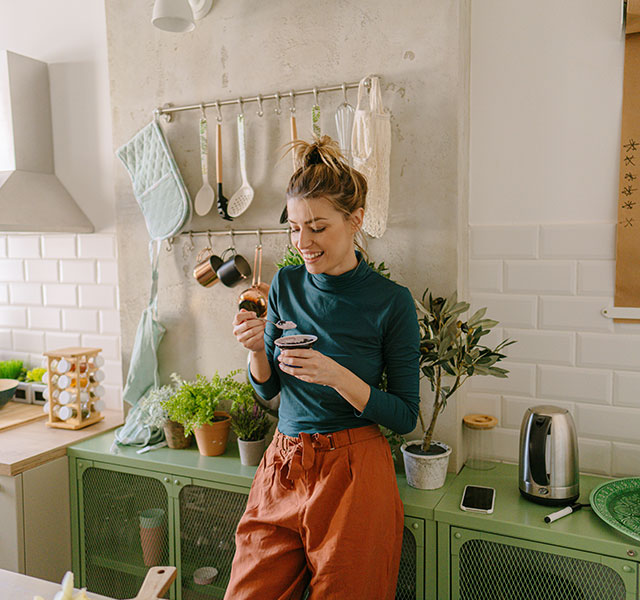Many of us have grabbed a quick meal or snack on the run, often standing to eat. Ever wonder how standing versus sitting to eat affects your digestion and overall health?
“There are only slight differences in the way you digest food when you eat while standing versus sitting. Your eating habits play a bigger role in regulating digestion and boosting overall health,” says Mustafa Al-Shammari, M.D., a gastroenterologist at Henry Ford Health. “So focus on eating slowly, choosing a well-balanced diet, staying hydrated and exercising regularly to support digestion and maintain a healthy weight.”
What Are The Pros And Cons Of Standing Up To Eat?
It turns out that skipping the table and eating standing up offers advantages and disadvantages.
“Studies have shown that your stomach tends to empty faster when standing versus sitting to eat. This marginal difference may provide relief for people with certain gastrointestinal conditions,” says Dr. Al-Shammari.
For example, people with acid reflux experience heartburn or a sour taste from stomach acid that travels back through the tube (esophagus) that connects the throat and stomach. Likewise, individuals with gastroparesis feel full or have nausea and vomiting after eating. That’s because their stomach is unable to empty properly.
But if you have reflux or gastroparesis, standing to eat isn’t your only option. “While standing to eat could offer individuals with these conditions relief, it’s not the only solution. Sitting upright during and after eating provides the same benefit,” says Dr. Al-Shammari.
Eating standing up can also lead to discomfort from bloating, cramps and gas. These symptoms occur because your stomach moves food faster down your digestive tract. You also tend to eat faster when you stand, causing you to swallow more air.
“Eating standing up can also lead to weight gain because you may feel hungry sooner after standing to eat,” adds Dr. Al-Shammari.
What Are The Benefits Of Eating Sitting Down?
Sitting down to eat allows you to take time to enjoy your food and eat more slowly. Food stays in your stomach longer, helping you feel full after finishing your meal.
“When you sit down for a meal, you eat more leisurely, which helps you manage your portion size and avoid extra calories. You also tend to chew your food more thoroughly when sitting, which aids digestion,” Dr. Al-Shammari says.
Healthy Eating Habits
When it comes to your digestion and overall health, eating habits are more important than eating position. Dr. Al-Shammari recommends trying these strategies:
- Avoid laying down after eating: Keep upright for two to three hours after meals to reduce gastrointestinal discomfort and aid digestion.
- Eat a well-balanced diet: Plan meals that include fruits and vegetables, lean protein and whole grains. Avoid fatty, fried foods and sugary drinks.
- Exercise regularly: Movement helps digestion and boosts overall health and wellness. Start the day with a morning walk or try multiple short exercise sessions throughout the day.
- Practice mindful eating: Be purposeful during meals and focus on your food. Eliminate distractions by turning off your phone, computer and television during meals. Make meals a time to connect with family and friends. This approach can help you more fully enjoy your meals and avoid overeating.
- Stay hydrated: Aim to drink at least 64 ounces of water daily to support regular bowel movements and overall digestive health.
To find a gastroenterologist at Henry Ford, visit henryford.com or call 1-800-436-7936.
Dr. Mustafa Al-Shammari is a gastroenterologist who sees patients at Henry Ford Hospital and Henry Ford Medical Center - Lakeside.



